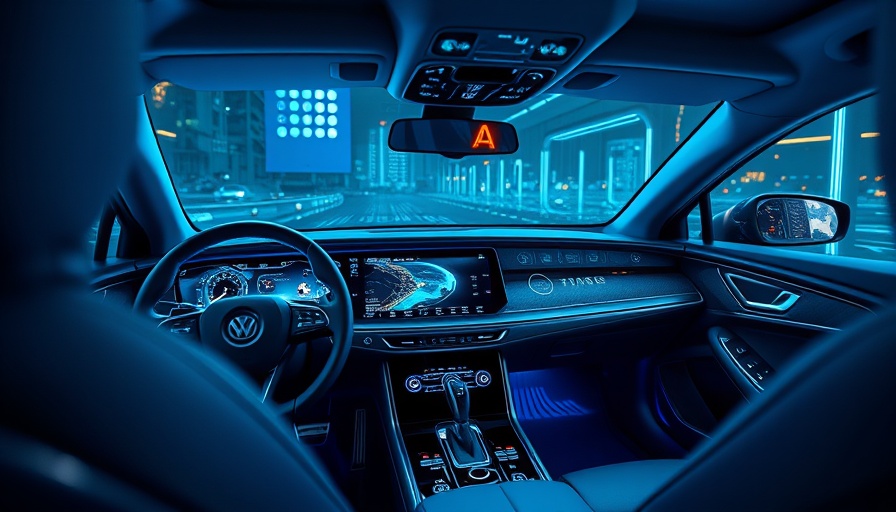
The Alarming Vulnerability in Connected Cars
The automotive industry has made significant strides toward next-level connectivity, offering consumers unparalleled convenience through features like remote unlocking and engine starting. However, this advancement comes with its own set of risks. Recently, a security researcher, Eaton Zveare, uncovered a critical vulnerability within a popular automaker's dealership portal during a presentation at DEF CON in Las Vegas. This flaw potentially allowed unauthorized access to customer vehicles—providing hackers with the opportunity to control various functions, track vehicles, and access sensitive personal data.
How Was the Hack Achieved?
According to Zveare, the hack originated from weaknesses in the online dealership portal’s login system, which enabled him to bypass its security protocols completely. He highlighted how this flaw allowed him to establish a “national admin” account, granting him administrator-level access. With these privileges, Zveare could potentially link any vehicle to a mobile app account. Many contemporary vehicle apps offer features that allow users to lock or unlock their cars remotely, start their vehicles, and locate them. This ability poses significant risks, especially since the only necessary information required for these processes could be as minimal as an individual's name or VIN number.
Potential Consequences of the Vulnerability
Zveare tested this vulnerability on a friend's vehicle, successfully transferring ownership of the app account and gaining access to all enabled features. Although he did not test whether he could drive the car away, the access he obtained underscored a severe breach that could have allowed malicious actors access to personal belongings and private data. Fortunately, the automaker responded promptly to Zveare's report and has since rectified the issue, reassuring customers of their safety. Nonetheless, this incident serves as a vivid reminder of the potential dangers that accompany modern technological advances in the automotive industry.
A Growing Trend: Security Challenges in Automotive Tech
This particular incident reflects a broader trend of vulnerabilities in connected vehicles. As more automakers integrate advanced technology into their cars, the potential for these types of attacks increases. For example, similar incidents have been reported in the past that expose not only the vehicles but also the personal information of their owners. The interconnectedness of today’s automotive systems, while convenient, has made them lucrative targets for cybercriminals.
What Can Consumers Do?
So, what does this mean for consumers? Staying informed about the security of your vehicle is crucial. Here are some actionable steps that owners can take:
- Regular Updates: Ensure that you keep your vehicle’s software and apps updated to benefit from the latest security patches.
- Change Default Passwords: Always change the default passwords associated with your car’s system or app to something secure and unique.
- Monitor Activity: Keep an eye on any unusual activity within your vehicle's connected app and report any discrepancies to the manufacturer immediately.
The Future of Automotive Security
While the automaker involved in this situation has confirmed that the vulnerability has been addressed and no unauthorized access was detected, it highlights an urgent need for improved safety measures across the industry. Organizations need to remain vigilant in their security practices, adopting a robust approach to protect user data and vehicle integrity. As more consumers embrace the convenience of connected features, the onus is on both automakers and consumers to prioritize cybersecurity in their vehicles.
Conclusion: A Call to Action for Industry Awareness
As we witness advancements in automotive technology, being proactive about cybersecurity can help safeguard personal data and vehicle integrity. By remaining informed and taking necessary precautions, consumers can enjoy the benefits of connected cars while minimizing potential risks. The landscape of automotive technology is continually evolving; staying aware is your best defense.
 Add Row
Add Row  Add
Add 




Write A Comment